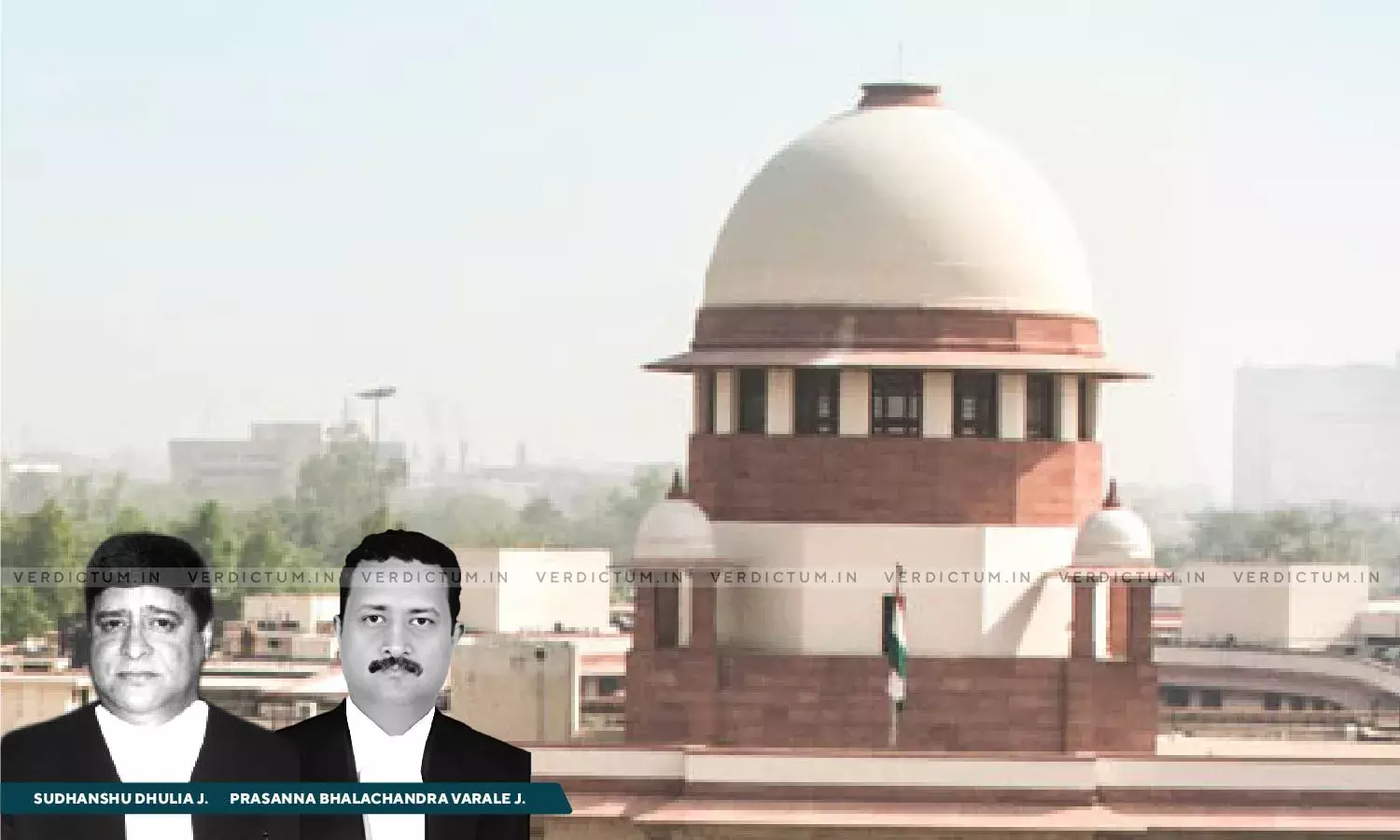Supreme Court: Plaintiff Claiming Absolute Ownership Of Property Must Plead Correct Property Number, Extent And Boundaries
The Supreme Court upheld the decision of the Karnataka High Court which held that without title deeds, the Trial Court was not justified in decreeing the suit, cancelling the sale deed, or ordering possession.

The Supreme Court has held that a person claiming absolute ownership of a property must provide the correct property number, extent, and boundaries with cogent and acceptable evidence before the Court.
The Court upheld the decision of the Karnataka High Court wherein it was held that the documents relied upon by the Plaintiff were not title deeds and were only assessment extracts which did not suggest their ownership over the scheduled property. The High Court had held that without title deeds, the Trial Court was not justified in decreeing the suit, cancelling the sale deed, or ordering possession.
A Bench of Justice Sudhanshu Dhulia and Justice Prasanna B Varale held, “As stated above, the High Court in the present case found that the documents relied upon by the plaintiff to showcase that he was in possession of the property i.e. the revenue record extracts fall short to establish the case of the plaintiff. There was also no certainty about the suit of the property. On the contrary, there were ambiguity on the suit property. The High Court, thus considering these aspects has addressed the issue correctly and we are unable to find any error in the reasoning as well as the conclusion drawn by the High Court.”
Advocate Sharanagouda Patil appeared for the Appellants, while Advocate Abhay Choudhary M represented the Respondents.
Brief Facts
The Plaintiff claimed possession of the suit property through an oral partition between his father and his father’s brother. The Plaintiff alleged that the first defendant, at the instigation of the second defendant, attempted to interfere with his possession and fraudulently obtained a sale deed for the suit property.
The Karnataka High Court held that the plaintiff had not produced any title deeds proving ownership over the suit property. The Court observed that revenue records do not confer ownership and that the documents relied upon by the plaintiff, such as assessment extracts and a panchayat palu patti, did not establish title.
Court’s Reasoning
The Supreme Court noted the Respondent’s argument that the Plaintiff had failed to produce any material before the Trial Court to establish the factum of his possession over the suit property. It was submitted that the documents which were relied upon by the plaintiff were only the extracts of the revenue record.
“While dealing with the documents, it was observed by the High Court that Ex.P-2 is the demand register extract...Except this, there are no details about the property. Similarly, Ex.P-3 is also the demand register extract which relates to assessment No. 62/1,” the Bench noted.
“At the cost of repetition, it can be stated that there was no certainty of the scheduled property. Respondent No.1 in his written submission had said that the plaintiff failed to produce any documents of title. The plaintiff also failed to disclose the date or year of the alleged “oral partition” in the family. It was also submitted by the learned counsel for the respondent that the so-called partition deed placed on record at Ex.7 relates to entirely different property and it is in no way related to the suit property,” the Court remarked.
Consequently, the Court held, “One who comes before the court with a declaration that, he is the absolute owner of the schedule property, he must plead the correct property number, extent and also boundaries before the court with cogent and acceptable evidence. On critical assessment of the material placed on record, the Trial Court arrived at the conclusion that the plaintiffs had failed to prove their ownership over the scheduled property by adducing acceptable oral and documentary evidence.”
Accordingly, the Supreme Court dismissed the Appeal.
Cause Title: Naganna (Dead) By Lrs./ Smt. Devamma & Ors. v. Siddaramegowda (Since Deceased) By Lrs. & Ors. (Neutral Citation: 2025 INSC 369)
Appearance:
Appellants: Advocates Sharanagouda Patil, Supreeta Patil and Jyotish Pandey
Respondents: AOR Anuradha Mutatkar; Advocates Abhay Choudhary M, Vivek Ram R and D P Chaturvedi

